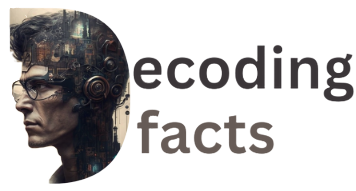Nanotechnology is a field in science and technology related to the development, manufacture, and application of nanoscale materials and devices. It usually involves controlling and manipulating matter at the molecular and atomic levels, allowing the development of materials and devices with unique capabilities and properties.
This blog post will provide an introduction to nanotechnology and its…
The Science of Aging is nothing but a normal biological process that affects all living things. It is distinguished by a progressive decline in physical and mental function as well as an increased susceptibility to disease and death. Aging is a complicated phenomenon influenced by a number of genetic, environmental, and lifestyle factors. Our cells, tissues, and organs change as we age, which can…
The healthcare industry has been producing massive amounts of data at an unprecedented rate in recent years. Electronic health records, medical images, sensor data, and other health-related information are examples of this data. The collection, processing, and analysis of these large and complex datasets to extract valuable insights that can inform healthcare decisions and improve patient outcomes…
Gene editing is a rapidly evolving field that enables scientists to make precise changes to the DNA of living organisms. With the ability to add, remove or modify specific genes, gene editing has the potential to revolutionize medicine, agriculture, and biotechnology. One of the most promising techniques for gene editing is the CRISPR-Cas9 system, which has made it faster, cheaper, and more…
Quantum computing is a new computing model that uses quantum mechanics principles to perform certain computations more efficiently than traditional computers. Unlike traditional computers, which use binary digits (bits) to represent information, quantum computers use quantum bits (qubits), which can exist in multiple states at the same time. Because of this property, known as superposition…
Social media has become an integral part of modern society, with billions of people around the world using platforms like Facebook, Twitter, and Instagram on a daily basis. While social media has many potential benefits, such as facilitating communication and connecting people across the globe, it also has significant drawbacks. The purpose of this article is to explore the impact of social media…
Artificial intelligence (AI) has rapidly advanced in recent years, with the potential to transform many aspects of society. As AI continues to play an increasingly significant role in our lives, it is essential to consider the ethical implications of its development and use. AI ethics is a field that explores the moral and ethical considerations surrounding the creation and deployment of AI…
For centuries, human imagination has been captivated by the universe’s wonders and mysteries. There is much to discover and explore, from the origins of the universe to the nature of dark matter and dark energy. The Great Observatories – Hubble Space Telescope, Chandra X-ray Observatory, and Spitzer Space Telescope – have been instrumental in solving some of the Mysteries of the…
Dreams have fascinated humans since the beginning of time. They are mysterious, unpredictable, and often elusive. Some people remember their dreams vividly, while others claim they never dream at all. Regardless of our individual experiences with dreams, they continue to captivate us and leave us with questions about their meaning and purpose. In this blog, we will explore the topic of dreams…
The practice of mindfulness meditation has become increasingly popular in recent years, and for good reason. It has been shown to have numerous benefits for both mental and physical health, making it an excellent tool for managing stress and improving overall well-being.
So, what exactly is mindfulness meditation? At its core, mindfulness meditation involves focusing your attention on the…
